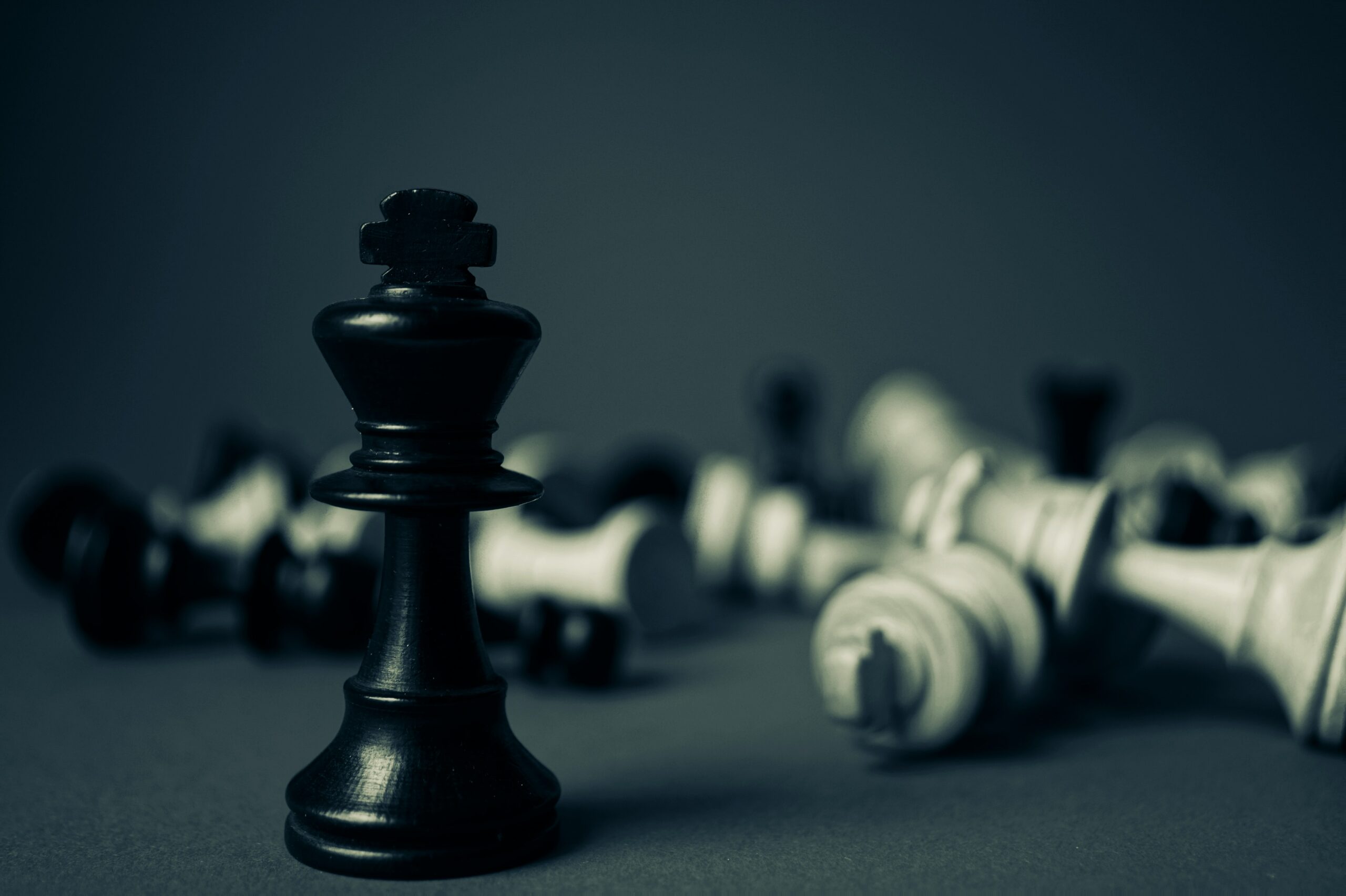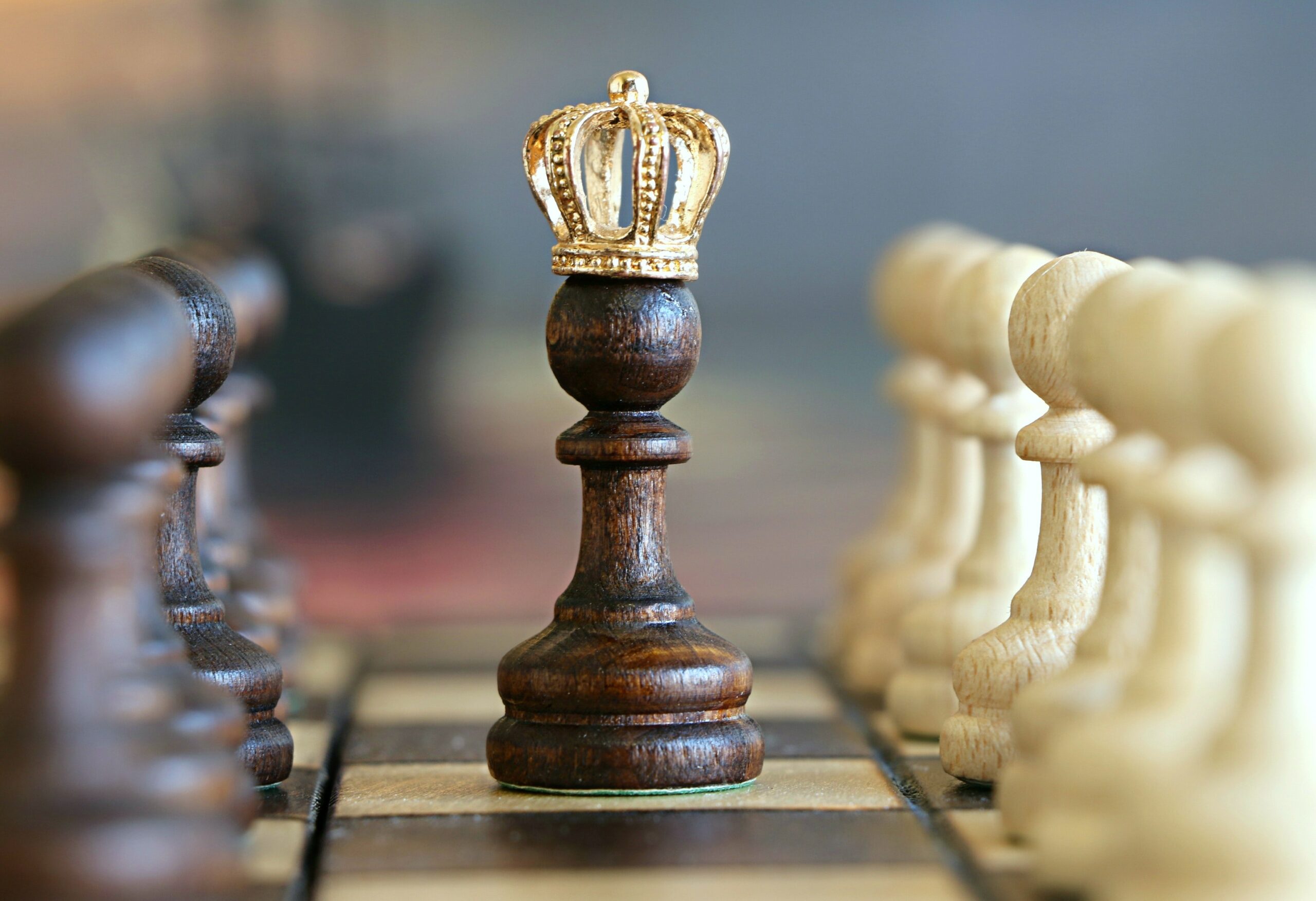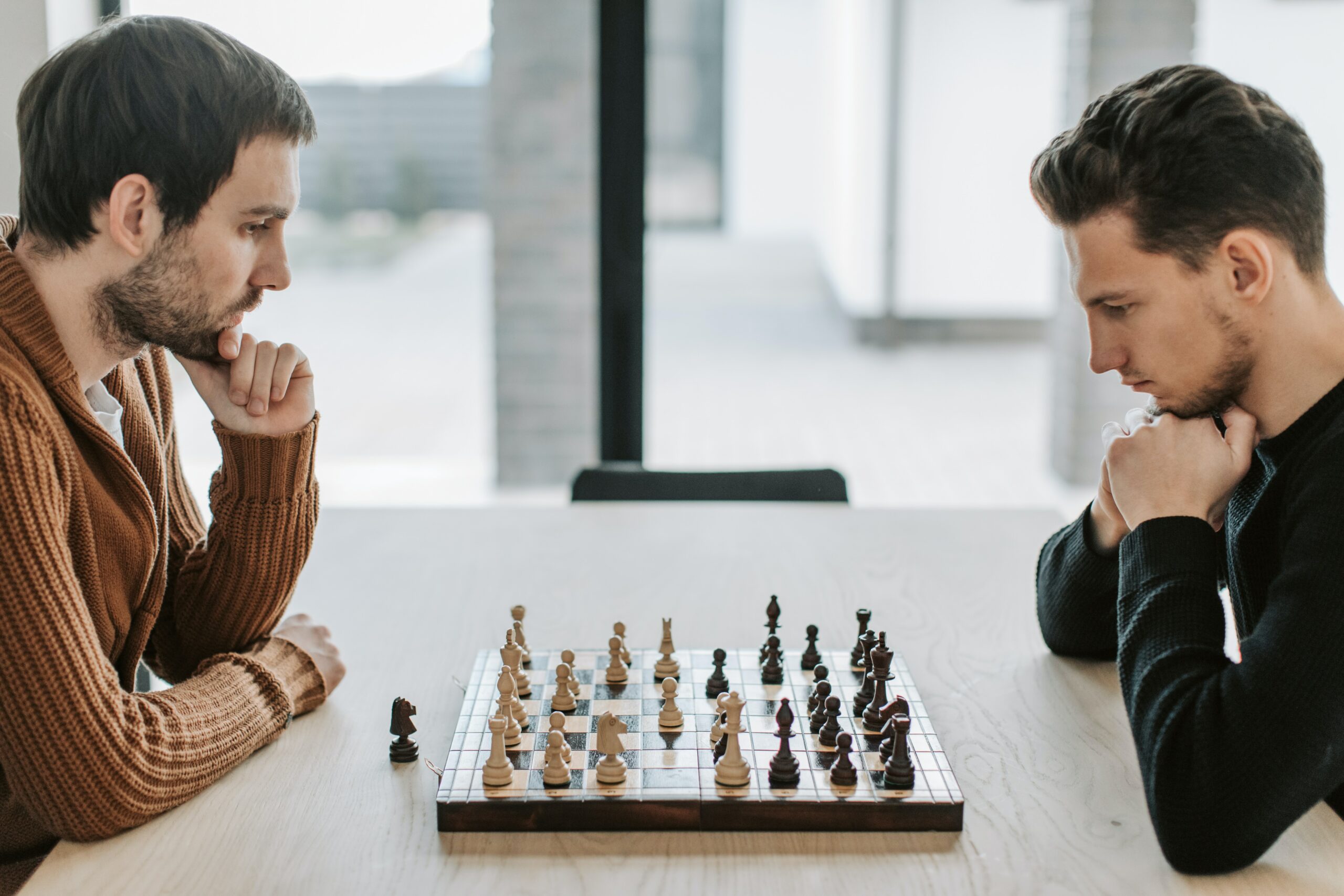Welcome to the world of chess, where strategy and calculation intertwine to create a captivating game of wits. While chess is often associated with analytical thinking, it also offers a unique space for unleashing your creativity. In this article, we will explore the best ways to improve your chess creativity and ignite that spark of imagination on the chessboard.
Whether you’re a beginner or an experienced player, these techniques and strategies will help you think outside the box, come up with original ideas, and enhance your overall chess performance. Get ready to unlock the door to endless possibilities and take your chess game to new creative heights!
How can I foster creativity in chess?
Fostering creativity in chess requires a mindset of exploration and originality. Embrace the spirit of curiosity and open-mindedness as you approach the game. One way to foster creativity is by studying and analyzing a wide range of chess games, including those of grandmasters and creative players.
Expose yourself to different styles and ideas, and let them inspire you to think outside the box. Additionally, solving chess puzzles and engaging in tactical exercises can enhance your ability to find creative solutions on the board.
Embrace unorthodox openings and experiment with new strategies, allowing yourself to break free from rigid thinking patterns. By nurturing an environment of creativity and embracing diverse approaches, you can unlock your chess potential and discover unique ideas that will surprise your opponents.
What are the benefits of developing chess creativity?
Developing chess creativity offers a multitude of benefits. Firstly, it allows you to approach each game with a fresh perspective, making it harder for your opponents to predict your moves. Your creativity can lead to innovative strategies and unexpected combinations, putting pressure on your opponents and providing you with a competitive edge.
Creativity also enhances your problem-solving skills, as you learn to navigate complex positions and find creative solutions. Moreover, it adds excitement and enjoyment to your chess experience, as you explore new ideas and push the boundaries of what is possible on the board. Finally, developing chess creativity extends beyond the game itself, as it fosters critical thinking, lateral thinking, and imaginative skills that can be applied to other areas of life.

How does imagination impact chess performance?
Imagination plays a crucial role in chess performance. It allows you to visualize potential moves and anticipate your opponent’s plans. Through imagination, you can create mental images of different variations and evaluate the consequences of each move. Imagination helps you to see patterns, recognize tactical opportunities, and formulate strategic plans.
By developing your imaginative abilities, you can unleash your creativity, discover original ideas, and surprise your opponents with unexpected moves. Imagination fuels your passion for the game and enhances your overall chess performance, as it gives you the ability to think beyond what is immediately visible on the board.
Are there specific exercises to enhance chess creativity?
Yes, there are specific exercises that can enhance your chess creativity. One effective exercise is solving chess compositions and studies. These artistic puzzles often involve unusual or challenging positions that require creative thinking to find the best moves.
Additionally, analyzing master games and studying the games of creative players can inspire you to think differently and develop your unique style. Playing against stronger opponents and analyzing your games with the help of a chess engine can also foster creativity by exposing you to different ideas and alternative approaches. Engaging in these exercises regularly will sharpen your creative skills and expand your chess repertoire.
Can studying chess classics enhance my creative thinking?
Studying chess classics is an excellent way to enhance your creative thinking in chess. These timeless games from legendary players provide a wealth of ideas, strategies, and tactical motifs that can ignite your creative spark. By immersing yourself in the games of chess giants like Mikhail Tal, Anatoly Karpov, or Bobby Fischer, you can absorb their thought processes, learn from their inventive moves, and understand the underlying principles that led to their success.
Chess classics offer a rich tapestry of creative possibilities, allowing you to explore different themes, positional concepts, and imaginative combinations. By studying and analyzing these games, you can expand your chess understanding, sharpen your intuition, and develop your unique creative style on the board.
How can visualization improve chess creativity?
Visualization is a powerful tool for improving chess creativity. By training your mind to visualize the chessboard and its pieces in your imagination, you can explore different scenarios and possibilities without the constraints of the physical board. Visualization helps you to see moves and combinations in your mind’s eye, allowing you to plan, anticipate your opponent’s responses, and calculate variations more accurately.
It also enhances your ability to analyze complex positions and assess the consequences of different moves. Regular practice of visualization exercises, such as mentally replaying games or solving puzzles in your head, strengthens your creative thinking skills and enhances your overall chess performance.
What role does pattern recognition play in chess creativity?
Pattern recognition is a fundamental aspect of chess creativity. By developing a keen eye for patterns and motifs on the chessboard, you can quickly identify similarities between different positions and recall similar patterns from your chess knowledge. Pattern recognition allows you to make intuitive connections, recognize tactical opportunities, and generate creative ideas based on previously encountered patterns.
It also helps in strategic planning, as you can draw upon patterns from well-known openings, middlegame structures, and endgame positions to guide your decision-making. By honing your pattern recognition skills through consistent practice and exposure to a wide range of chess positions, you can enhance your creativity and become a more resourceful and adaptable player.
Can playing against stronger opponents enhance chess creativity?

Playing against stronger opponents is a valuable way to enhance chess creativity. When facing stronger players, you are exposed to new ideas, challenging positions, and unconventional strategies. This forces you to think creatively, adapt your game plan, and find innovative solutions to the problems posed by your opponents.
Playing against stronger opponents pushes you out of your comfort zone and encourages you to explore alternative moves and ideas that you may not have considered before. It provides valuable learning opportunities, as you analyze the games afterward to identify areas for improvement and discover new possibilities. Embrace the challenge of playing against stronger opponents as a means to foster your chess creativity and elevate your game to new heights.
How does studying endgames contribute to chess creativity?
Studying endgames is an essential component of chess creativity. Although endgames may appear simpler compared to complex middlegame positions, they require precise calculation, strategic planning, and imaginative thinking. By delving into the realm of endgames, you gain a deeper understanding of piece coordination, pawn structures, and the art of converting advantages into victories.
Studying endgame classics and solving endgame puzzles enhances your ability to find creative solutions and exploit even the tiniest advantages. The principles and concepts learned from endgames can be applied to other phases of the game, enabling you to make more creative and informed decisions in the middle game and beyond. So, embrace the study of endgames as a powerful tool to cultivate your chess creativity.
Can analyzing your games improve chess creativity?
| Methods | Benefits | Challenges |
|---|---|---|
| 1. Regular Puzzle Solving | Sharpens tactical skills Enhances pattern recognition Improves calculation abilities |
May lack context and strategy |
| 2. Studying Classical Games | Exposes to masterful play Provides historical perspective Inspires creative ideas |
Requires time and analysis |
| 3. Embracing Chess Variants | Encourages unconventional thinking Expands strategic possibilities Boosts adaptability |
Requires adjustment to variant rules |
| 4. Analyzing Master Annotations | Reveals deep insights and plans Highlights key positional concepts Develops critical thinking |
May require an advanced understanding |
| 5. Engaging in Creative Exercises | Fosters imagination and originality Promotes out-of-the-box thinking Encourages experimentation |
Requires proactive creativity |
Analyzing your games is a highly effective way to improve chess creativity. By reviewing your games, you gain valuable insights into your thought processes, decision-making, and areas for improvement. Analyzing your moves and evaluating alternative possibilities encourages critical thinking and fosters creative problem-solving.
It helps you identify patterns in your play, recognize recurring mistakes, and discover opportunities for improvement. By studying your games with an open mind, you can uncover hidden gems, missed opportunities, and creative ideas that you may have overlooked during the game.
Analyzing your games in conjunction with computer engines and seeking feedback from stronger players further enhances your analytical skills and promotes chess creativity. Embrace self-analysis as a powerful tool to fuel your chess growth and unlock your creative potential.
How does studying classical games enhance chess creativity?

Studying classical games is a treasure trove for chess creativity. These games, played by the masters of the past and present, showcase brilliant ideas, strategic maneuvers, and creative sacrifices. By immersing yourself in the analysis of classical games, you expose yourself to a wide range of playing styles and groundbreaking concepts.
You can learn from the greats and adapt their innovative ideas to your own game. Studying classical games helps you develop an understanding of positional play, the importance of pawn structures, and the art of long-term planning.
It also expands your chess vocabulary, introducing you to new patterns and thematic ideas that you can incorporate into your play. Embrace the rich heritage of classical games as a wellspring of inspiration and a catalyst for your chess creativity.
Can studying chess puzzles boost chess creativity?
Absolutely! Chess puzzles are like mental gymnasiums for chess players, providing an opportunity to sharpen your tactical acumen and fuel your creativity. Solving puzzles requires you to analyze the position, visualize different moves and variations, and find the best continuation.
Puzzles challenge your thinking and force you to consider unconventional ideas and hidden tactical motifs. They stimulate your problem-solving skills, expand your tactical repertoire, and train your ability to think outside the box.
The more puzzles you solve, the more patterns and tactics you internalize, enhancing your overall chess creativity. So, embrace the world of chess puzzles as a fun and effective way to boost your tactical acuity and nurture your creative genius.
How does studying chess literature contribute to chess creativity?
Studying chess literature is a well-established method of nurturing chess creativity. Books written by renowned chess authors delve into various aspects of the game, including openings, middlegames, endgames, strategy, and tactics. They provide comprehensive insights, detailed analysis, and annotated games that offer a glimpse into the minds of chess masters.
By immersing yourself in chess literature, you gain exposure to diverse ideas, strategic concepts, and creative plans. You can learn from the experiences and thought processes of legendary players and adapt their knowledge to your games. Chess literature serves as a source of inspiration, guiding you to explore new paths, experiment with novel ideas, and cultivate your unique chess style. So, grab a chess book, dive into the pages, and let the wisdom within unleash your chess creativity.
In Conclusion
The quest to improve chess creativity is a journey of exploration, inspiration, and continuous growth. It requires a multifaceted approach that combines various strategies and techniques. Engaging in regular practice, both in terms of playing games and solving puzzles, hone your tactical skills and expands your chess vocabulary.
Studying classical games and immersing yourself in chess literature exposes you to the wisdom and creativity of past and present masters, providing a rich source of inspiration. Embracing chess variants and experimenting with unconventional ideas stimulates your ability to think outside the box and find innovative solutions on the board. Cultivating a mindset of curiosity, open-mindedness, and a willingness to learn from both victories and defeats fuels your creative fire.
Remember, chess creativity is not confined to a single path but flourishes through a diverse and dynamic approach. So, explore, learn, practice, and let your imagination soar across the 64 squares. With dedication and a thirst for creativity, you will unlock new dimensions of chess mastery and enjoy the beauty of this timeless game.




